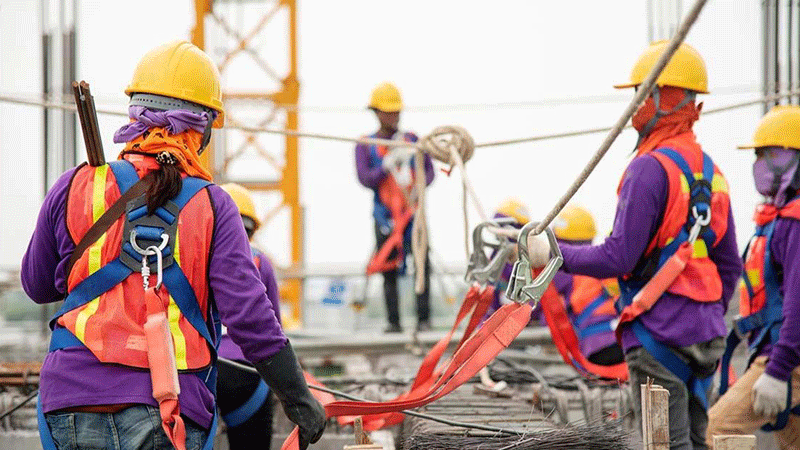 |
Lao nationals at work on a foreign construction site.
|
ASEAN nations review challenges faced by migrant workers
Laos and other ASEAN countries have made progress in safeguarding the rights and improving the livelihoods of migrant workers, according to the Ministry of Labour and Social Welfare.
However, significant challenges remain, and there are valuable lessons to be learned in order to strengthen protection for workers in the years to come.
Lao nationals working abroad continue to send substantial remittances back home. It is estimated that they transfer around US$4.5 million a month, a significant portion of which is sent to their families, typically parents, a ministry official said.
These remittances are crucial to the Lao economy, as they are often spent on goods and services within the country, providing an important economic stimulus.
One of the most pressing issues facing migrant workers in the region is forced labour. Many workers find themselves trapped in situations where they are not compensated for their work, or worse, are subjected to abuse and exploitation.
Despite the benefits, migrant workers continue to face numerous challenges, especially when it comes to the upholding of their rights.
Speaking at a workshop on the ASEAN Post-2025 Action Plan for Migrant Workers’ Rights, a ministry official acknowledged that countries like Laos, which have long been sources of migrant labour, have seen improvements in the economic conditions of their citizens working abroad.
But, she said, serious issues persist, particularly regarding the prevention of exploitation and abuse. One common form of exploitation involves contractors who act as traffickers, requiring workers to pay for their recruitment upfront.
When these workers arrive at their destination, they often find that their wages are not paid as promised. In many cases, employers refuse to compensate workers for their labour, resorting to threats or even physical abuse when workers attempt to leave or demand their wages, she said.
The system of protection for migrant workers remains imperfect. Many workers are unaware of their legal rights, and the fear of reprisals or deportation prevents them from seeking justice. The lack of social or legal avenues to address grievances makes it difficult for these workers to escape abusive situations.
As a result, many migrant workers find themselves stuck in cycles of debt and abuse. They are unable to support their families, and their vulnerability to exploitation deepens as they fall further into financial dependence on their employers. This creates an entrenched form of bondage, which is difficult for workers to escape.
The Ministry of Labour and Social Welfare has highlighted the need for better protection of workers, saying that employers and recruitment agencies should be held accountable for misleading or exploiting workers.
Furthermore, to prevent such abuses, authorisation documents must be issued by local authorities before workers can be relocated.
Companies wishing to recruit workers for jobs, whether within Laos or abroad, must first submit a letter to the Ministry of Labour and Social Welfare.
By
Phetphoxay Sengpaseuth
(Latest Update June 19, 2025)
|


